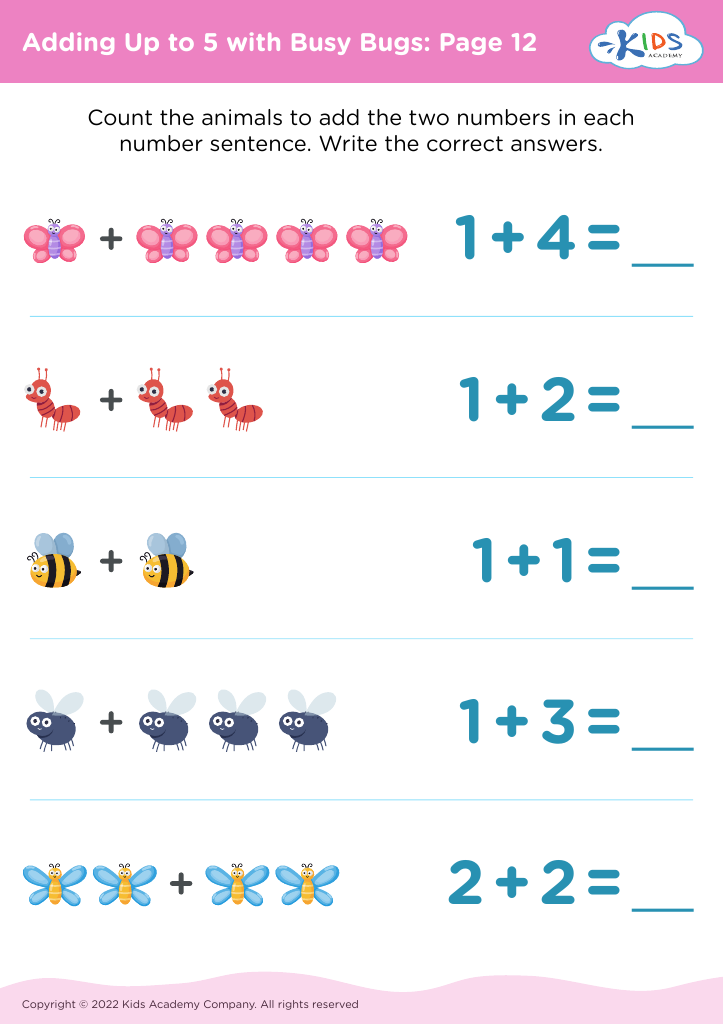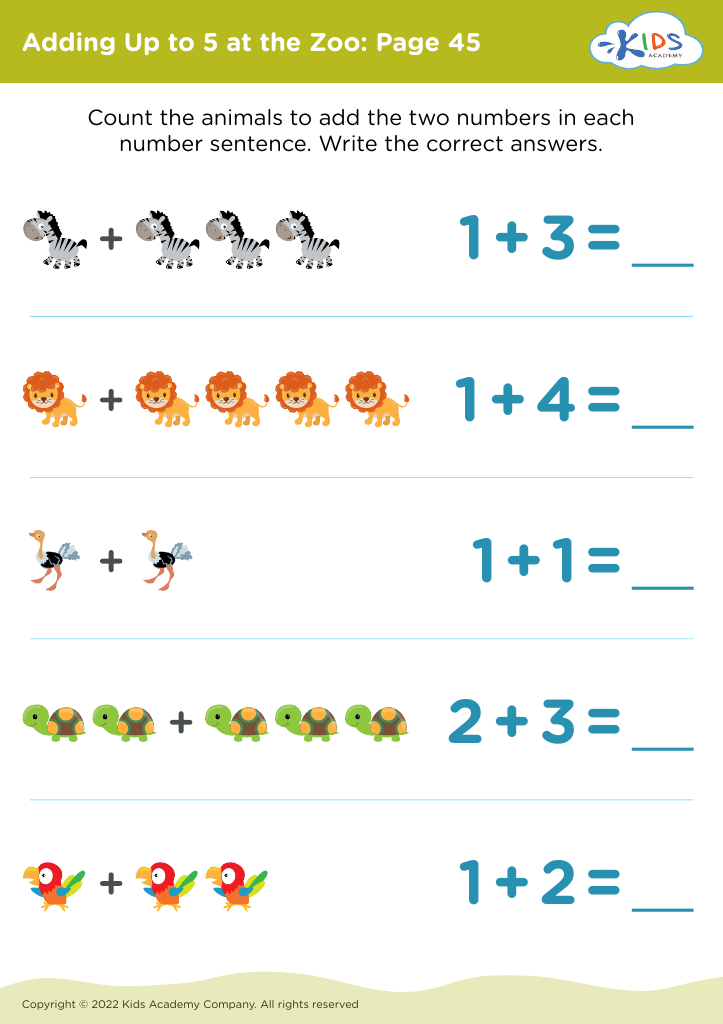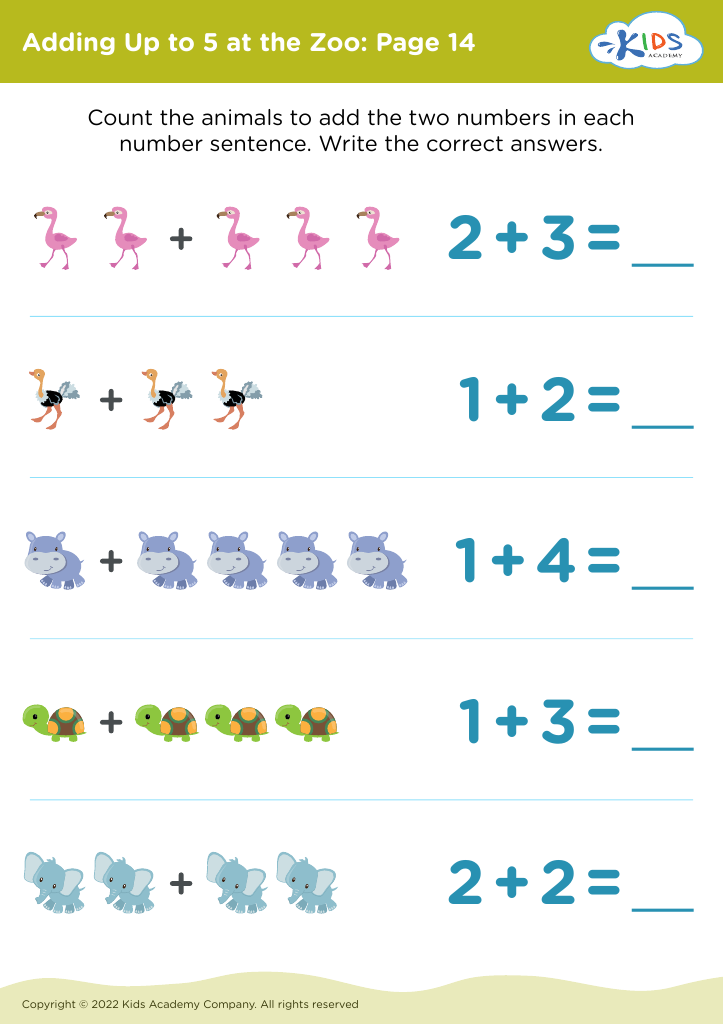Understanding number value Adding Up to 5 Worksheets for Ages 5-7
3 filtered results
-
From - To
Explore our engaging "Understanding Number Value Adding Up to 5 Worksheets" designed for children aged 5-7. These worksheets help young learners grasp the concept of number value through fun and interactive activities focused on addition skills. Ideal for preschool and early grade education, our resources provide colorful illustrations and step-by-step guidance, making learning enjoyable and effective. Perfect for teachers and parents, these printable worksheets nurture mathematical confidence while strengthening foundational skills. By incorporating real-life examples, children will connect numbers with their values, setting a solid stage for future math success. Start your little one's math journey today with our engaging resources!
Understanding number value and adding up to 5 is crucial for children aged 5-7, as it lays the foundation for their future mathematical learning. At this developmental stage, young children are typically exploring concepts of quantity, number recognition, and basic operations. Mastering the understanding of number value helps them comprehend how numbers relate to each other, which is essential for effective problem-solving skills.
When children learn to add numbers up to 5, they engage in critical thinking, allowing them to visualize and manipulate small quantities. This skill not only promotes numeracy but also strengthens their cognitive abilities, as they learn to recognize patterns and develop an understanding of mathematical relationships. Additionally, proficiency in these early skills can boost their confidence, preparing them for more complex math concepts in later grades.
Moreover, when parents and teachers actively support and encourage this learning, they create a positive environment for exploration and curiosity. Incorporating engaging activities, such as counting games and hands-on manipulatives, can make learning enjoyable. This foundational understanding will not only aid academic success but also equip children with problem-solving skills applicable in everyday life. In conclusion, valuing number understanding is integral to shaping a child's mathematical journey.











.jpg)
%20(1).jpg)









